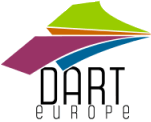Mostrar el registro sencillo del ítem
Strategies to improve the end of master’s project
| dc.contributor.author | Carrascal-Domínguez, S. | |
| dc.contributor.author | Espada Mateos, María | |
| dc.date.accessioned | 2017-09-22T15:23:01Z | |
| dc.date.available | 2017-09-22T15:23:01Z | |
| dc.date.issued | 2015 | |
| dc.identifier.issn | 2340-1079 | |
| dc.identifier.uri | http://hdl.handle.net/20.500.12020/480 | |
| dc.description.abstract | The development of the end- of- Master’s project (TFM) according to the regulations by EEES (R.D. 1393/ 2007) deals with the need to produce a strategic plan which allow the TFM to confirm and demonstrate the competences acquired by students throughout their formation. In Spain it is the Spanish Qualifications Framework for Higher Education (MECES) the institution in charge of regulating the European profile systems by drawing up a framework to be a reference for attached to EEES Universities. During the research, the students will show their ability to carry out individual study, which help them concentrate and work together with similar minded people. The university provides them with many resources to make both professors and students conceive the TFM as a way to get on to scientific texts in academic researching environments. One of the strategies that have been set out in the production of the TFM is to follow the same structure of an academic article. To make it possible, students have firstly to get used to the process of bibliographical research in scientific magazines about the subject in question. This will help them select the useful information and acquire a total command of the subject under study. In addition they will learn to develop a work dealing with the publication rules required by the scientific magazine in question. Another important point is the knowledge of scientific quotations students will acquire: they will have to find out about the current quotation rules as well as a proper use of it. In this regard, on the TFM which have been produced in the Faculty of Social Sciences and Education, students will have to quote according to the American Psychological Association (APA). The purpose of all these guidelines is to get students used to scientific literature and the work of research that help them acquire the precise knowledge both to become a teacher in the future and keep on studying higher education subjects | es |
| dc.language.iso | en | es |
| dc.rights | Attribution-NonCommercial-NoDerivatives 4.0 Internacional | * |
| dc.rights.uri | http://creativecommons.org/licenses/by-nc-nd/4.0/ | * |
| dc.title | Strategies to improve the end of master’s project | es |
| dc.type | article | es |
| dc.journal.title | INTED2015 Proceedings | es |
| dc.page.initial | 206 | es |
| dc.page.final | 206 | es |
| dc.rights.accessRights | openAccess | es |
| dc.subject.area | Ciencias de la Educación | es |
| dc.subject.keyword | academic research, scientific article, education, knowledge, tfm. | es |
| dc.subject.unesco | 5899 Otras Especialidades Pedagógicas | es |
Ficheros en el ítem
| Fichero/s | Tamaño | Formato | Ver |
|---|---|---|---|
|
No hay ficheros asociados a este ítem. |
|||





